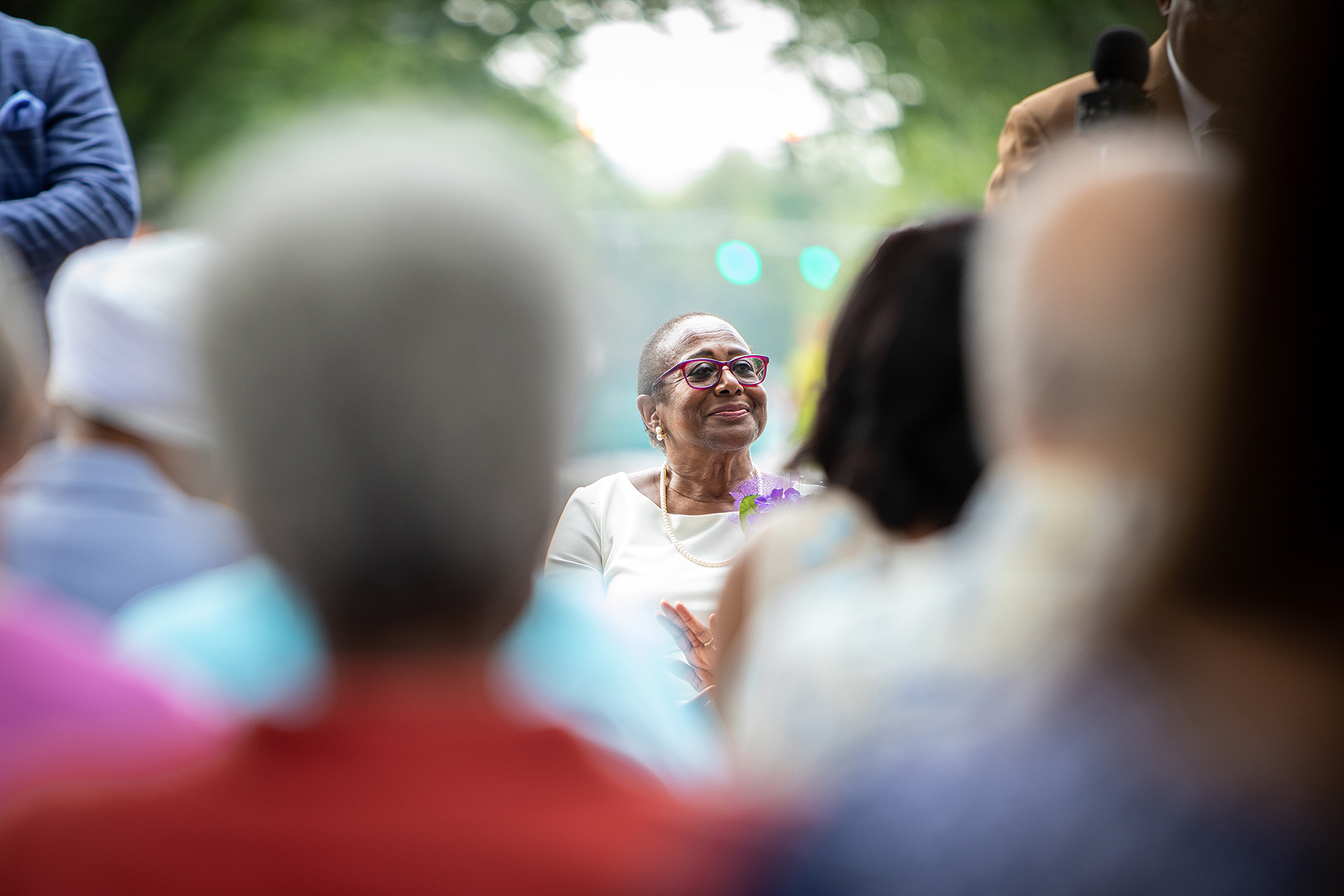

UB faculty member Lillian S. Williams (center) looks out among the crowd of people gathered to honor suffragist Charlotte Dett with a historical marker in Niagara County. Williams nominated Dett for the honor and spoke at the dedication. Photo: Meredith Forrest Kulwicki
By ALEXANDRA SACCONE
Undergraduate English major
Published September 8, 2023
A new historical marker celebrating Black suffragist Charlotte Dett was unveiled recently during a ceremony in Niagara Falls, thanks to the efforts of UB faculty member Lillian S. Williams, who nominated Dett for the honor.
“Dett is an unknown story, like that of so many African American women, and will enhance our understanding of these reform movements,” Williams, associate professor in the Department of Africana and American Studies, College of Arts and Sciences, told the crowd that gathered for the event on Aug. 16 at the site of Dett’s one-time home.
Dett (1862-1937), a suffragist and preservationist, was vice president of the Empire State Federation of Women’s Clubs and served in several executive positions of the National Association of Colored Women’s Clubs (NACW). She joined other NACW members, including President Mary Talbert, in preserving the Washington, D.C., estate of Frederick Douglass and in honoring the life of Harriett Tubman of Auburn.
This year is the 103rd anniversary of the ratification of the 19th Amendment, which gave women the right to vote. Williams, who serves on the board of the National Vote for Women’s Trails and the National Collaborative for Women’s History Sites, noted there are few markers to document this event, and even fewer to celebrate the contribution of Black suffragists.
“The collaborative was concerned about getting more diverse representation because typically, when we look at the suffrage movement, we focus upon upper class white women like Susan B. Anthony and Elizabeth Cady Stanton. But there were a variety of women of color and working-class women that were involved, and there were no markers for them,” said Williams, who is also director of community engagement in Africana and American Studies. “So, in the 21st century, we began to look at the roles that these women played in the movement — whether they were working class, whether they were women of color — we wanted an opportunity to document their contributions as well.”
